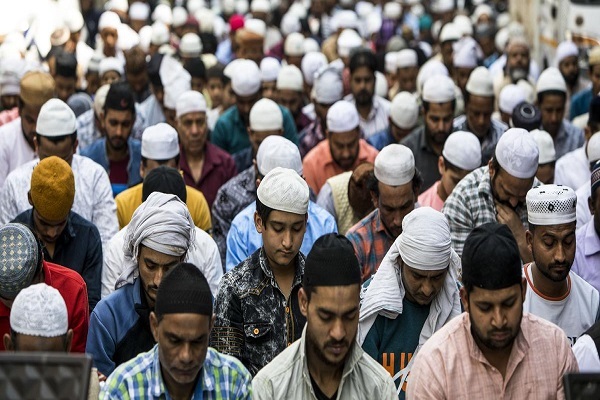New Bill in India’s Assam Stokes Fears of Targeting Muslims

Kazim Alam has elaborated on the issue in an article on TRT World, which is as follows:
The government in the northeastern state of Assam in India has announced plans to enact legislation that analysts say targets the minority Muslim population.
Dubbed an anti-“love jihad” measure, the proposed law promises life imprisonment for coerced religious conversions through marriage and allows for the arrest of the accused man’s parents.
Analysts say the legislation is designed to vilify Muslim men as predators and fracture the fragile communal harmony in a state already scarred by ethnic strife.
The announcement, made on October 22, bundles the “love jihad” bill with others, targeting polygamy and land rights for tea tribes. But it is the former that has ignited outrage.
Assam Chief Minister Himanta Biswa Sarma, who belongs to the right-wing BJP party of Prime Minister Narendra Modi, declared the proposed legislation “historic,” while framing it as a shield for “social harmony”.
Yet, beneath the rhetoric lies a pattern of exclusionary politics, which paints Assam’s 34 percent Muslim population as an existential threat to the state's “indigenous” identity.
With provincial elections looming in 2026, analysts say the move will create further polarization, diverting attention from pressing crises like annual floods that displace millions.
Aman Wadud, a spokesperson for the opposition Congress party in Assam, is highly critical of the move. “The entire thing is ambiguous. It’s a false Hindutva narrative,” he tells TRT World.
He points out that other Indian states that have enacted similar laws also failed to define the baffling term of “love jihad”.
Drawing from ordinances like Uttar Pradesh's 2020 Prohibition of Unlawful Conversion of Religion, which impose sentences of up to 10 years for similar offences, Wadud highlights the extremity of Assam’s proposal: life terms and parental arrests.
Standalone cases of coercion should be handled under existing laws, not through divisive laws enacted in the run-up to the election, he says.
Data from BJP-ruled states shows that the evidence of Muslim men marrying Hindu women in increasing numbers is shaky at best.
Read More:
In Assam's mixed-faith districts, where Hindus, Muslims, and tribal groups have coexisted for generations, the bill risks entrenching suspicion and disharmony on the basis of faith.
“It is apparent that the target is one community,” Wadud says.
The “love jihad” trope alleging that Muslim men lure Hindu women for conversion to swell their numbers is no new invention.
Nadira Khatun, professor of communications at XIM University in Odisha, tells TRT World the proposed law is a “continuation of the earlier anti-religious conversion law” enacted in provinces like Madhya Pradesh and Uttar Pradesh.
“The entire discourse of love jihad resonates with right-wing propaganda: Muslims or ‘they’ are thought to outbreed ‘us’ Hindus,” she says.
By criminalizing consensual relationships, the bill transforms private intimacies into “matters of state surveillance and punishment”, propagating a broader stigmatization of Muslims as the “cultural other” in BJP strongholds, she says.
Khatun points to parallel restrictions on beef consumption, hijab bans, and property laws that collectively “mark Muslims as the cultural other”, eroding their dignity and rights.
In Assam's context, the timing of the proposed law amplifies the peril.
Assam Chief Minister Sarma’s rhetoric intertwines “indigenous Assamese identity” with Hindutva, a fusion that Khatun describes as “exclusionary populism”.
Read More:
She says that such laws instill “fear of psychological violence... to strengthen the feeling of oneness”.
“The female body is utilized as a component to generate that threat,” she says.
Women are co-opted as “active agents in propagating the feeling of nationalism”, where the “divine feminine should be protected” by male members of society from being threatened by the “others”, she says.
This gendered nationalism, she notes, mirrors historical precedents.
The anti-Sikh mobilizations of the 1980s that fueled riots, besides Assam's own 1979-1985 anti-immigrant agitations, which blurred religious identity with citizenship, leading to the 1983 Nellie massacre that claimed over 2,000 Muslim lives.
Amir Ali, professor of political science at Jawaharlal Nehru University in New Delhi, calls the narrative of so-called love jihad “preposterous”.
The narrative is an old one that the BJP has used across states, he tells TRT World. It conjures images of “hyper-masculine and oversexed young Muslim men deliberately luring and trapping naive Hindu girls”.
Yet, no reliable statistics corroborate it as a phenomenon, he insists.
The fact that such laws are being enacted reveals “the directionlessness of politics in India in general and the targeting of Muslims in particular”.
Chief Minister Sarma's “deeply hateful” rhetoric is contributing to an incremental build-up of hatred towards Muslims and their “otherization” as second-class citizens.
As a result, Muslims are denied housing, education, employment, and the larger rights and benefits of citizenship, he says.
Read More:
Thus, the trust between communities, especially Muslims and Hindus, is at an all-time low in India, he says.
Ali lists the proliferating forms of “jihads” that Indian Muslims are being accused of – from “flood jihad” to “spit jihad” – as examples of otherization tools that are fueling bigotry in society.
In the run-up to the election, the BJP looks to polarize Muslim voters, building on bypoll wins in minority seats through “justice over appeasement”.
Source: Trtworld.com



